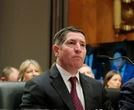Luigi Mangione has been charged with the murder of United Healthcare CEO Brian Thompson, but some are hailing him as a hero.
Others, however, worry that this reaction may unleash a wave of copycat crimes. Mangione’s mugshot is making the rounds across social media, and memes and merchandise abound. In New York City, wanted signs for CEOs have popped up, while a Florida woman was arrested after threatening her health insurer with language similar to engravings on the bullets found near Thompson’s body.
Thompson’s murder has struck a chord with Americans who are disgusted by the broken health insurance system and increasingly frustrated by growing inequality, but is lionizing Mangione the appropriate response? According to one study published in the journal Crime & Delinquency, one-fourth of juvenile offenders said they have attempted a copycat crime.
Fast Company spoke with Dr. Jacqueline Helfgott, a professor of criminal justice at Seattle University and the author of Copycat Crime: How Media, Technology, and Digital Culture Inspire Criminal Behavior and Violence (Bloomsbury, 2023), about the possible impact that Thompson’s death and the reaction to it will have on crime.
Let’s jump right into it. Do you think this will trigger a wave of copycat crimes?
I think we’re already seeing it, and we’re going to see more. In Seattle, someone put up a flashing road sign that said “one less CEO, many more to go.” Who knows how many other places that’s happening? This case has all the elements of setting the stage for copycat crime. We’re being bombarded with images and information about this crime. Digital culture can impact people who are between committing a crime and not committing a crime—I call them edge sitters.
What elements of a crime cause it to be more likely to be copy-catted?
First is the idea that crime is fun. There are a lot of “fun” elements here. The bullets were engraved with “deny, defend, depose.” [N.B. This is similar to a 2010 book entitled Delay, Deny, Defend: Why Insurance Companies Don’t Pay Claims and What You Can Do About It.] There was a backpack filled with monopoly money found nearby; we’re seeing tons of memes on social media.
Second are the aesthetics of the murder and the murderer. Many people find Mangione attractive. People are playing that Britney Spears song with the lyrics “Mama, I’m in love with a criminal.” Historically, we’ve had a fascination with attractive murderers.
Third is the prevalence of media loops. We’re being inundated by images and information about this crime. It’s being played and replayed. Then it’s going on social media where people are glorifying him. It’s everywhere.
Fourth, the way the media depicts the story can exacerbate the copycat effect. For example, if there’s a rationale that’s meaningful for people, if you see a story where a person gets away, or the reasons for committing the [crime] are explained in a favorable way.
What about cultural context? We’re at a time when people are frustrated with the health insurance system and some feel that traditional ways of making change are not working.
That goes back to the media depiction of the story—we have a rationale for the murder that many people sympathize with. This can exacerbate the copycat effect because people identify with the perpetrator as opposed to the victim. We can tell stories of violence in ways that glorify the victim or the perpetrator—scholars, in fact, argue that we should not use terms like “lone wolf shooter” or the name of the perpetrator because that glorifies the person who commits violence. However, the way we tell stories tends to be whatever sells the most movies or newspapers.
By the way, identifying with the criminal—feeling like this person looks like me, acts like me—is another factor that can exacerbate copycat crime for edge sitters.
You mentioned that this crime impacts edge sitters—people who are the borderline of committing a crime. What about other people?
You know, we’re all edge sitters—some of us more than others. We need more research on this, but there’s a small subset of people where there’s a relationship between level of psychopathy and susceptibility of committing a crime, such as John Hinckley who watched the movie Taxi Driver multiple times and then tried to assassinate President Reagan. But then there’s the rest of us where this particular crime has so many elements that resonate that it has the potential to trigger a much broader wave of violence than other cases.
What is the impact of copycat crime on society?
Given the rise of digital culture, copycat crime has the power to influence more people at a faster rate and cause more trauma for people. We’re seeing a situation where someone got shot on the street early in the morning. Copycat crime means we are unleashing a wave of crime and we are traumatizing ourselves by witnessing more violence. Violence affects the quality of people’s lives.
So if copycat crime means we’re letting the rule of violence take over, what can we do to stop it?
We need to stop glorifying violence. Parents should educate their kids on media literacy. If someone is celebrating a perpetuator of violence, don’t validate that—we shouldn’t be selling swag that celebrates a killer; we should be asking ourselves, Is that useful and beneficial to society? It can be as simple as changing the topic when someone brings up how attractive the murderer is at the dinner table.
If, as you mentioned, this case is resonating because people want change and don’t feel like it’s happening, what should people do besides resort to violence?
It’s a good question. We need to tell different stories about violence. Violence is a common reaction in human nature. Someone is hurting you, you defend yourself. But we need new narratives beyond one where the only way to get your power back is through violence.
So essentially, it’s a good time to have conversations about Gandhi, Martin Luther King Jr., and other people who were able to effect change through peaceful means?
From the perspective of the role that media and digital culture play in validating and exacerbating crime and violence as a response to powerlessness, we need to saturate media and culture with stories about how to create change through nonviolent action, such as education, legislation, and policy. Everyone can play a role to spread stories of nonviolent action to create change through constructive rather than destructive behavior that minimizes glorification and celebration of violence.










No comments